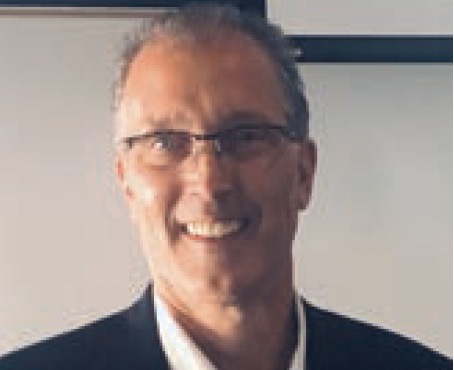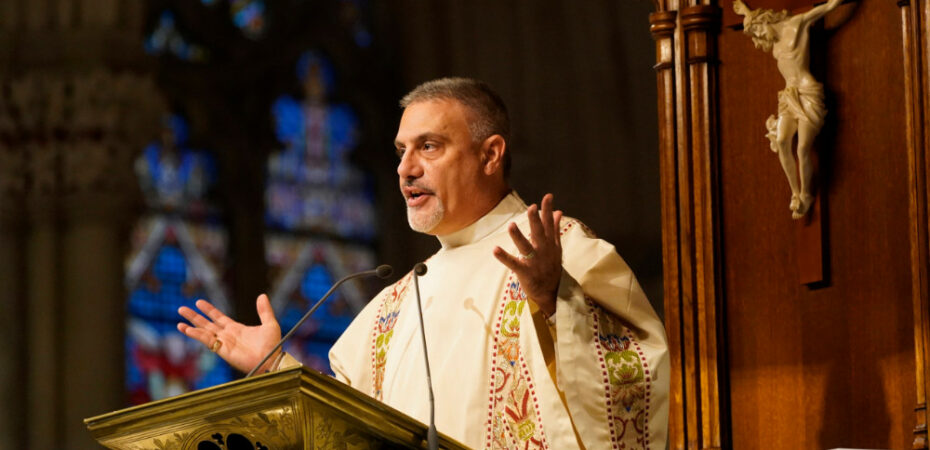The Diaconal Call to Teach
The deacon’s responsibility to practice what he preaches
Deacon Anthony Clishem 1
Every deacon, by virtue of his ordination, becomes a teacher. During the Rite of Ordination, at the handing on of the Book of the Gospels, the newly ordained deacon hears these words: “Receive the Gospel of Christ, whose herald you have become. Believe what you read, teach what you believe, and practice what you teach.”

The focus on teaching is hard to miss. And yet in that same moment, the deacon has not been instantly trained in the knowledge and skills of the teaching profession. So in what sense has the deacon become a teacher? How is he to understand this new imperative in his life and ministry? The answer, I think, has to do with the connection between our being and our doing, and how both change from the moment of ordination.
Professionally, since my 20s, I’ve been a teacher. Over the years, when asked the question “What do you do for a living?” I have been able to answer, “I am a teacher.” In that simple, often repeated exchange, there is an interesting sleight of language. The what-do-you-do of the question turns into the who-I-am in the response. In other words, what I do is part of who I am. I do not think this is accidental. At best, I teach because I possess the gifts, preferences and temperament that lend themselves to this type of work. Being and doing are not always at odds. In a natural sense, what I do springs from who I am.
Teach Yourself
Early in my teaching career, a colleague shared this bit of wisdom with me: “When you are in the classroom, you never simply teach reading or writing or social studies or science. You teach something more. You teach yourself.”
Today, I have a deeper insight into the meaning of those words. If I genuinely possess a sense of wonder and awe about the natural world, then, when I teach science, I will also share that wonder and awe with my students. If I have a passion for language and story, that passion will resonate with students whenever I share a favorite poem, novel passage or scene from a play. Regardless of the subject, a joyful teacher will have a joyful classroom. Moreover, the teacher who believes in every student’s value, potential and dignity will have a classroom where every student will learn.
As deacons, we encounter situations when we must faithfully instruct others in the tenets of the Catholic Faith. Here, in a particular way, we exercise our call to be teachers. But like the teacher whose instruction reflects who the teacher is, we share in a second call that builds on, perfects and even consummates the first. It is the call to practice what we teach.
Teacher and Master
The washing of the feet at the Last Supper endures in the Christian imagination as the great exemplar of diakonia. It also stands as one of the greatest teachable moments of all time. Like any teacher intending to make a lasting point among students, Jesus asks, “Do you realize what I have done for you?” (Jn 13:12). In what follows, Our Lord drives home the lesson that also establishes the diaconal call:
“You call me ‘teacher’ and ‘master,’ and rightly so, for indeed I am. If I, therefore, the master and teacher, have washed your feet, you ought to wash one another’s feet. I have given you a model to follow, so that as I have done for you, you should also do” (Jn 13:13-15).
In Christ alone, teacher and curriculum are perfectly one. Jesus teaches himself. In an imperfect way, the deacon teaches who he has become by virtue of his ordination. More precisely, he is capacitated to teach the One to whom he has been configured. Both in who he is and in what he does, the deacon is called to be the living instruction of Christ the Servant. If he does so faithfully, he will also assist in the building up of a servant Church.
DEACON ANTHONY CLISHEM serves as a permanent deacon at Christ the King Church in Lombard, Illinois.
…………………………………………………………………………………………………………………………………………….
Good Teachers
In an address to members of the Italian Union of Catholic School Teachers, Managers, Educators and Trainers, on March 14, 2015, Pope Francis addressed his teacher colleagues with these words: “The duty of a good teacher — all the more for a Christian teacher — is to love his or her more difficult, weaker, more disadvantaged, students with greater intensity. Jesus would say, if you love only those who study, who are well educated, what merit do you have? And there are some who make us lose our patience, but we must love them even more! Any teacher can do well with such students. I ask you to love the ‘difficult’ students more … those who do not want to study, those who find themselves in difficult situations, the disabled and foreigners, who today pose a great challenge for schools.”
…………………………………………………………………………………………………………………………………………….






Comments are closed.